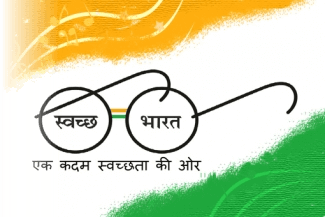Pace Setting Activities
The Navodaya Vidyalayas have been envisaged as pace-setting institutions, centres of educational excellence, providing opportunities for development, not only to Navodaya Vidyalaya students, but also to the children of neighbouring rural area schools through sharing of resources. Leadership qualities and other educational concerns that are linked to community and national developments are also supposed to be inculcated through pace-setting activities. “The aim of the pace-setting activities is to galvanize the academic, social, cultural and community oriented environment of schools,” in the vicinity. By virtue of having a highly qualified and competent team of teachers, good laboratories and IT infrastructure, teaching aids and sports equipment and rich libraries, JNVs are in a position to function as a “focal point for improvement in the quality of school education in general, through sharing of experience and facilities”. Interactions of staff and students of Navodaya Vidyalayas with their counterparts in adjoining schools, participation in joint community efforts, adoption of a village for awareness programmes and sharing of educational facilities are some of the pace-setting activities undertaken by Navodaya Vidyalaya. JNVs also make general attempts to involve the local school community in disseminating the modern school practices with a view to improve school eco-system.
One of the basic objectives of the Navodaya Vidyalaya scheme has been enable the JNVs to play the role of a pace setting institution in the field of school education in the respective districts. The aim of the pace setting activities is to “galvanize activities, social, cultural and community oriented environment of schools” in the vicinity.
By virtue of having a highly qualified and competent team of teachers, state of the art laboratories and IT infrastructure, teaching aids and sports equipment and rich libraries the JNVs are in apposition to function as a “ focal point for improvement in the quality of school education in general, through sharing of experience and facilities”. Though the ambit of pace setting activities as pretty vast and much of the activities will depend on the ingenuity of the Principals and their team, some activities in the major areas are suggested below:
Academic Excellence:
- Innovations and experimentations in the teaching-learning process.
- Training/ workshop of teachers to adopt the latest educational technology.
- Optimum use of Vidyalaya laboratories and library.
- Use of Mathematics and junior science laboratories.
- Effective communication and computation skills.
- Counselling, career counselling and motivational sessions.
Co- curricular activities:
- Participation of the students of the neighbouring schools in the co-curricular activities of the JNV.
- Competitions and exhibitions.
- Programmes for the neighbouring schools on awareness of issues like conservation of nature, road safety, first aid, cleanliness, civic sense and democratic values and scientific temperament.
- Scout and Guide and adventure activities.
- Organizing Youth Parliament session and fine arts and performing art workshops.
Community Services
- Coaching of rural children for JNVST.
- Organizing immunization camps, health check-up camps, first training camps, pollution control and cleanliness drive, literacy campaign etc.
- Providing mobile library for rural learners.
- Organizing awareness campaigns on health and hygiene, safe drinking water, population education, balanced diet, disaster management, RTI and consumer laws, child labour and right to education.
- Organizing street plays for promotion of scientific spirit, conservation of nature and energy, water harvesting, tree plantation, family planning, education of the girl child, balanced diet and safe drinking water, pollution control and awareness of the evils of dowry system, untouchability, female feticide, alcohol and drug addiction, gambling, illiteracy and superstition etc.
- Computer literacy programme.
- Vermi-compost and mushroom culture under SUPW activities.
The First Step to Pace setting:
Way back in the year 2002 the Samiti suggested an easy to execute and effective activity in pace setting (vide page 303 of the Compendium of Circulars: Academic). Those JNVs which have not done it yet can take the initiative today itself. An impressive board may be permanently fixed at the front corridor of the Vidyalaya displaying the list of fundamental duties citizens. Go ahead!

